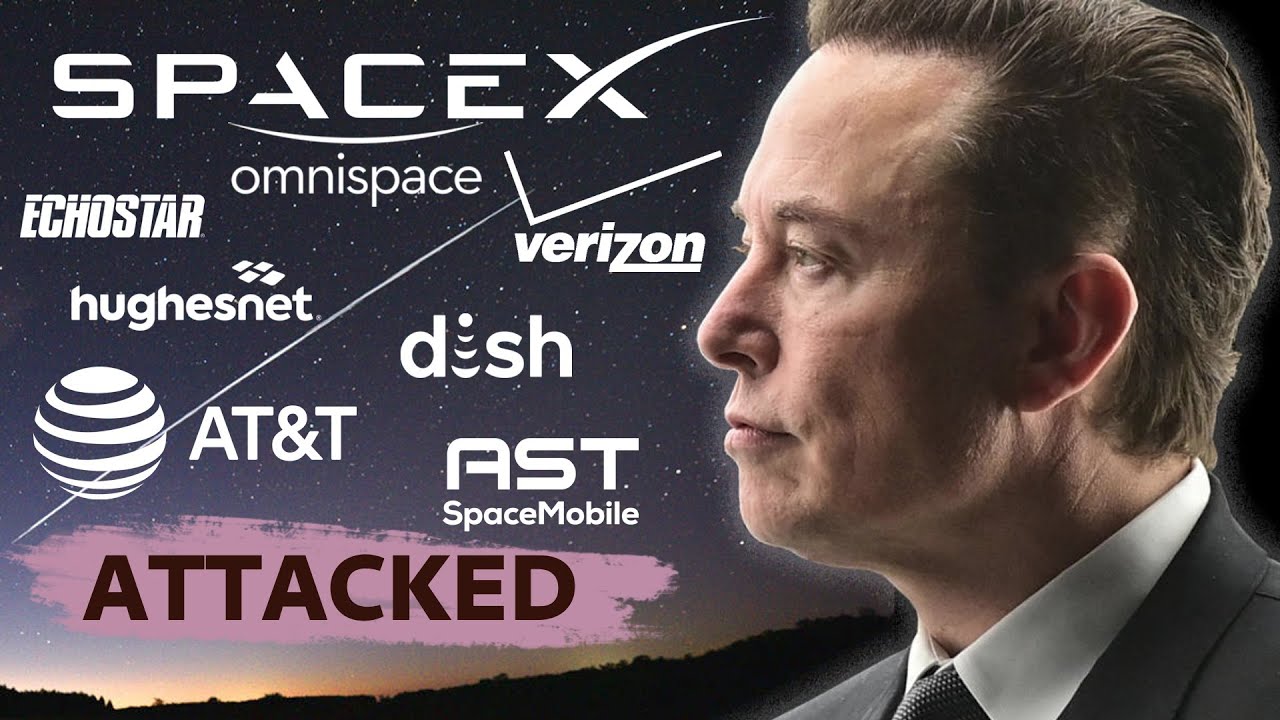
The Battle for the Skies: How Major Telecom Giants are Targeting Elon Musk’s Starlink
In the rapidly evolving world of telecommunications, the skies have become the new battleground. Elon Musk’s SpaceX Starlink, with its groundbreaking direct-to-cell (DTC) service, has captured the attention of not just consumers but also some of the biggest players in the telecom industry. As Starlink continues to push the envelope by offering cellular connectivity directly from space, major telecom giants like AT&T, Verizon, EchoStar, and Dish Network are launching a collective challenge to protect their terrestrial dominance.
The Starlink Revolution
Starlink’s DTC service is a game-changer. Imagine being able to make a phone call or send a text from anywhere on the planet without relying on traditional cell towers. Instead, your unmodified smartphone connects directly to one of SpaceX’s low Earth orbit (LEO) satellites, currently over 100 of which are equipped with the necessary technology to act as cell towers in space. This capability not only opens up new possibilities for connectivity in remote areas but also poses a direct threat to traditional telecom infrastructure.
The Competitive Onslaught
As Starlink’s potential becomes increasingly apparent, established telecom companies are pulling out all the stops to protect their interests. Companies like AT&T and Verizon have filed objections with the Federal Communications Commission (FCC), arguing that SpaceX’s satellite system could interfere with and degrade existing mobile broadband services. They claim that Starlink’s request for a waiver to exceed certain power flux density limits could result in harmful interference with terrestrial networks, reducing the quality of service for their customers.
EchoStar and Dish Network, along with Omnispace, have also joined the fray. They argue that the rise of satellite-based cellular services like Starlink’s could erode their market share and disrupt the balance of power in the telecom industry. These companies, with deep pockets and legal expertise, are leveraging every available regulatory and legal avenue to slow down or block Starlink’s expansion.
The Stakes: More Than Just Competition
What’s at stake here isn’t just market share; it’s the future of global connectivity. Starlink’s LEO satellites operate much closer to Earth than traditional satellites used by companies like Globalstar, which provides emergency texting services in partnership with Apple. This proximity means lower latency and the potential for much more robust data services, including voice and video calls, which are currently impossible with higher-altitude satellites.
For traditional telecom companies, this represents an existential threat. If Starlink and similar services can provide reliable, global coverage without the need for terrestrial towers, the entire business model of companies like AT&T and Verizon could be upended. No longer would they be the gatekeepers of connectivity; instead, that role could shift to space-based networks.
The Legal and Regulatory Battles Ahead
As the battle intensifies, it’s clear that the outcome will hinge not just on technology, but on legal and regulatory decisions. The FCC’s rulings on these matters will be crucial in determining whether Starlink can continue its rapid expansion or whether it will be slowed down by the collective might of the telecom giants.
AT&T and Verizon’s objections are part of a broader strategy to delay or derail Starlink’s plans. They know that in the fast-paced world of technology, even a few months of delay can be critical. However, it’s worth noting that similar objections by other companies, like EchoStar and Omnispace, have previously been found to lack merit. Whether the latest round of challenges will fare any better remains to be seen.
The Future of Connectivity
Regardless of the outcome, it’s clear that we’re witnessing a pivotal moment in the evolution of global communications. Starlink’s vision of ubiquitous, space-based connectivity is no longer just a dream; it’s rapidly becoming a reality. But whether this new reality will be shaped by innovation or stifled by entrenched interests is the question of the hour.
As we watch this saga unfold, one thing is certain: the skies are becoming the new frontier for one of the most significant battles in the history of telecommunications. Whether Starlink will emerge victorious or be forced to compromise remains to be seen, but one thing is clear—this is a story with implications for everyone who uses a mobile device.
Final Thoughts
What do you think about this unfolding battle? Will Elon Musk’s SpaceX Starlink revolutionize global connectivity, or will the combined efforts of the telecom giants keep the status quo intact? Share your thoughts in the comments below, and be sure to watch the accompanying video to dive deeper into this fascinating topic.







